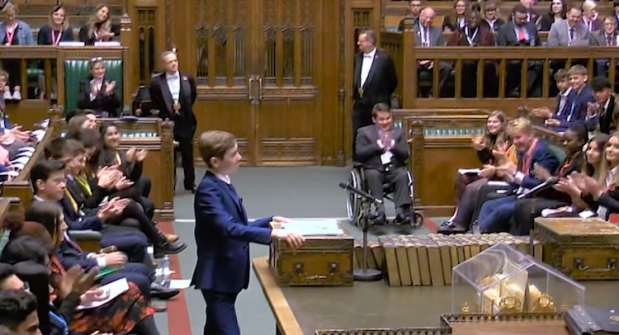Our approach to the Covid-19 pandemic has been a scientific folly. While some mortality is unavoidable during a pandemic, the failure to properly protect the elderly and other vulnerable has led to over 45,000 UK and 225,000 US deaths and counting. Added to that total is the extensive collateral damage on health from lockdowns, which is likely to be exacerbated in Britain by the latest lockdown. We have eroded public trust in the scientific community by ignoring basic principles of public health.
To address this, the Great Barrington Declaration has called for a sharp change in Covid-19 policy with focused protection as its central idea. It is based on three basic principles of public health ignored by lockdown proponents: (i) minimise long-term rather than short-term Covid-19 mortality; (ii) minimise morbidity and mortality from all diseases; not just Covid-19; and (iii) minimise disease and mortality in the entire population, including the working class and the poor.
While anyone can get infected, there is more than a thousand-fold difference in mortality risk between the old and the young, with Covid-19 being less dangerous to children than the annual influenza. With focused protection, older people and other high-risk groups must be better protected. Young adults, who face more harm from lockdowns than Covid, should be encouraged to live near normal lives. All children should be in school, in-person.
The long-term picture:
In Covid-19 discourse, countries and regions are judged on their current Covid-19 mortality rates. This is like comparing marathon runners by their positions at the five-kilometre mark. Covid-19 cannot be eradicated. The pandemic will be with us until there is enough population immunity to enter an endemic state with few annual deaths. The key is to minimise mortality until then. General age-wide lockdowns have postponed infections and extended the length of the pandemic, but a prolonged pandemic has made it more difficult for older high-risk people to effectively protect themselves.
Other health outcomes:
Extended lockdowns have caused enormous harms on other health outcomes. Childhood vaccination rates have plummeted, cardiovascular disease outcomes have worsened, cancers screenings and treatments were missed, surgeries postponed, and mental health has deteriorated. People do not visit doctors for the fun of it, so when doctor visits are down, as they are, this is to the detriment of people’s health. Online instead of in-person teaching not only deprives our children of a proper education but also likely harms their physical and mental health and their social development. Most of these negative effects will not appear in mortality statistics this year, but it is something we will live – and die – with for years to come.
Lockdown isn’t working:
Public health policy must consider everyone. The current lockdown strategy has protected young low-risk students and professionals who can work from home, such as bankers, lawyers, journalists, and scientists. By contrast, older high-risk working-class people were forced to work, risking their lives while building up the population immunity that will eventually protect us all. With collateral damage from lockdowns disproportionally hurting low-income people – especially inner-city residents – there has been a double whammy against the working class.
Some argue that it is impossible to separately protect high-risk older people, but the choice not to do so is a policy decision. We have ‘successfully’ shifted risk from the professional class to the working class, with our current lockdown policy. With focused protection, it is similarly possible to shift infection risk away from older and other high-risk people, minimising total mortality.
It is understandable that politicians focus on their own constituencies, but science is international, and scientists should take a global view. Too many pro-lockdown academics have taken a nationalistic and narrow-minded approach, ignoring the terrible plight that lockdowns impose on the poor in the developing world. Lockdown induced economic collapse has likely contributed to the starvation of tens of thousands of children worldwide. As another example, lockdowns have forced the destitute to walk for days to reach their home villages, some dying along the way. The immorality of lockdowns should shock every conscience.
The Great Barrington Declaration has been signed by over half-a-million people from around the world, including thousands of medical scientists and practitioners. It has also received considerable pushback from some journalists and academics, most notably in a memorandum that is perhaps ironically named after an epidemiologist famous for going against the herd thinking of his time. Amazingly, the memorandum largely ignores the three public health principles on which the Declaration is based.
The three basic public health principles have also been largely ignored by the U.S. media, which has elevated an eminent immunologist, Dr. Anthony Fauci, as the ‘nation’s expert’ on pandemic response, despite his limited epidemiology and public health expertise. At the same time, there has been a pseudoscientific witch–huntagainst Dr. Scott Atlas, an eminent public health policy expert, whose thinking is in line with basic principles of public health as well as against Professor Sunetra Gupta of Oxford University, the world’s pre-eminent infectious disease epidemiologist.
Politicians are not expected to understand everything about infectious disease epidemiology, but they must understand these three basic principles. If the government’s scientific Covid advisors do not understand them, new advisors are needed. It is the only way to properly address this terrible pandemic; minimising both Covid-19 and non-Covid mortality, as well as other harms to physical and mental health.
Got something to add? Join the discussion and comment below.
Get 10 issues for just $10
Subscribe to The Spectator Australia today for the next 10 magazine issues, plus full online access, for just $10.
Martin Kulldorff is a professor at Harvard Medical School. Jay Bhattacharya is a professor at Stanford Medical School




















Comments
Don't miss out
Join the conversation with other Spectator Australia readers. Subscribe to leave a comment.
SUBSCRIBEAlready a subscriber? Log in